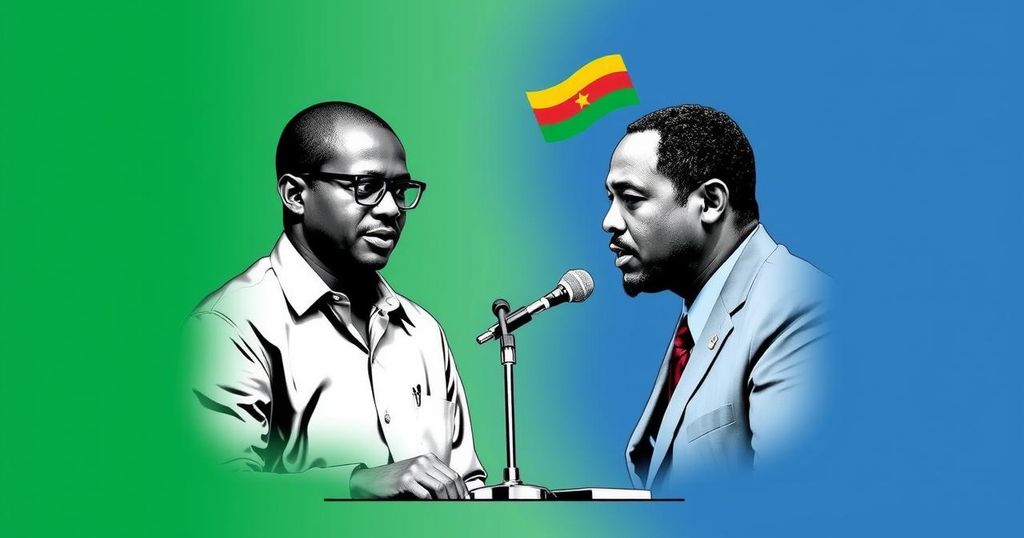Namibian Elections: SWAPO Contends with Challenges Amidst Emerging Opposition

Namibia’s elections present new challenges for the ruling SWAPO party, which seeks to maintain its influence after notable declines in past elections. Strong opposition candidates, particularly from the IPC and AR, are emerging to challenge SWAPO’s long-held dominance. Amidst this political landscape, Netumbo Nandi-Ndaitwah is poised to potentially become Namibia’s first female president, focusing on job creation and socioeconomic improvement.
Namibia is currently witnessing significant elections, with the South West Africa People’s Organisation (SWAPO) facing unprecedented challenges following past electoral declines. Polling has commenced for presidential and parliamentary seats, with SWAPO seeking to maintain its grip since 1990. While they remain strong in the northern regions, the party’s previous losses in urban centers raise questions about its future. Competing against a fragmented opposition, SWAPO’s victory seems plausible but contested by the Independent Patriots for Change (IPC) and the emerging left-wing party Affirmative Repositioning (AR). A pivotal factor in this election is the potential election of Netumbo Nandi-Ndaitwah as Namibia’s first female president, who aims to address pressing economic issues such as youth unemployment. The political dynamics highlight an essential debate regarding the effectiveness of opposition unity against a longstanding ruling party, where past historical sentiments may also play a significant role in voter choices.
The Namibian elections occur within a broader context of declining support for long-established ruling parties across southern Africa. Countries such as South Africa and Mozambique have seen their ruling parties challenged, indicating a regional shift. SWAPO has dominated Namibian politics since independence in 1990, but recent electoral results suggest a decrease in its overwhelming power. This trend raises the stakes as it competes amid a fragmented opposition landscape, with several parties vying for influence. Understanding the various political dynamics, including the rise of new parties and the implications of past colonial sentiments, is critical to analyzing the forthcoming electoral outcomes.
The upcoming Namibian elections represent a critical turn in the country’s political landscape, characterized by SWAPO’s ongoing dominance juxtaposed with the growth of the IPC and AR as significant challengers. Despite facing internal challenges and a fragmented opposition, SWAPO could leverage its historical legacy. However, with the potential election of Netumbo Nandi-Ndaitwah and pressing economic issues at the forefront, the electorate’s response may redefine the power dynamics at play in Namibia. The results from this election will provide insight into the evolving political sentiments in the region and the continuing legacy of liberation movements.
Original Source: www.dw.com








